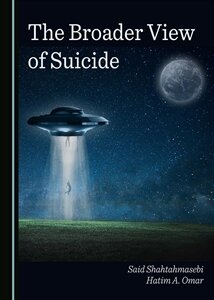
Things to read
Clarifying the Alternatives to Suicide Approach
Thanks to funding from Lottery West, Curtin University was contracted by ConnectGroups to run a different kind of evaluation. Instead of looking at group outcomes, we looked at defining and describing how Alternatives to Suicide works, what it looks like in practice, and how to fund Alternatives to Suicide in a way that reflects the needs of the community.
Read the report HERE.
The Broader View of Suicide
While many approaches to suicide prevention have been proposed, the only ones to show even limited success are those at the grassroots level; involving everyone, from parents to teachers, health care providers and the community as a whole. This book explores both current and outdated perceptions of suicide and presents a number of novel approaches and tools to prevent suicide, including the chapter ‘Alternatives to Suicide: Myths and New Choices’ written by RLC Director, Sera Davidow, and Director of Training, Caroline Mazel-Carlton.
It is available HERE
The Big Feels Club
“Ever feel like your feelings are too big for your human form? Like maybe you have whale-sized feels, surely not the feelings of an average human? Us too.” Big Feels Club really know how to talk about intense and overwhelming feelings in a down to earth way. Check out some of their best articles, as they say: “all written from halfway down the existential plughole.”
Read the article HERE
DISCHARGED Evaluation Report
In 2019, we conducted a small-scale research study exploring what our attendees were experiencing when they came along to DISCHARGED. To find out about how our groups impact people, check out the detailed findings of our world first, ethics approved evaluation of Alternatives to Suicide groups. These findings have significant implications for the utilisation of peer approaches when addressing suicide distress.
Read the report HERE
How Talking About Suicide Can Give People Something to Live For
As the title suggests, this article published in Oprah Magazine, discusses how talking about the tough stuff may be exactly what suicide survivors need. The writers suggest that the only people who really understand what it feels like to want to end their lives, are those who have been there. It features quotes from our favourite Director of Training, Caroline Mazel-Carlton from the Wildflower Alliance.
Read the article HERE
Alternatives to Suicide Meets Big Feels Club
Interested in hearing what it's been like for someone navigating the mental health system, then finding an Alternatives to Suicide group?
Check out this piece written by our friend who attends the online group in Sydney (previously supported by us) that was featured in the Big Feels Club newsletter!
Click on the image, or read the mailout here.
Alternatives to Suicide: Beyond Risk and Toward a Life Worth Living
This book takes a look at the dynamic interplay of risk and resilience that can help us approach suicide prevention collaboratively and with a life-focus. It explores key theories in the area of suicide risk and protective factors and shows how we are entering a new era of suicide research and prevention. This book also features a chapter called 'Alternatives to Suicide' as written by RLC Director, Sera Davidow, and Director of Training, Caroline Mazel-Carlton.
It is available HERE
Introducing Alternatives to Suicide
This article, published in The Community Psychologist, features an interview with Caroline Mazel-Carlton about the Alternatives to Suicide approach. In this article, Caroline clearly describes how Alternatives to Suicide is different from the current systemic paradigm of suicide prevention and how peer support can be vital for those living with suicidal thoughts and feelings (note: we love this article).
Find it HERE








